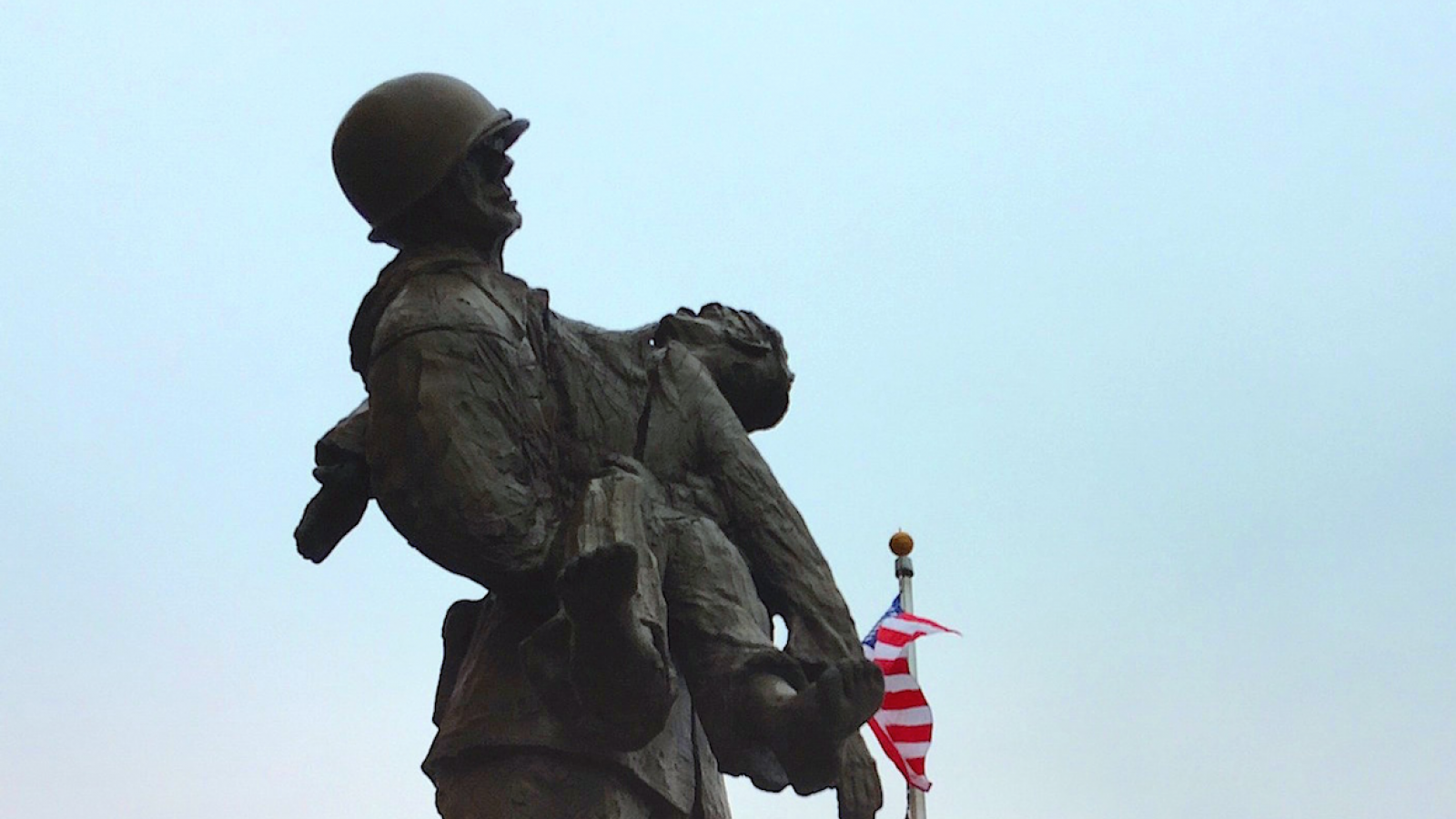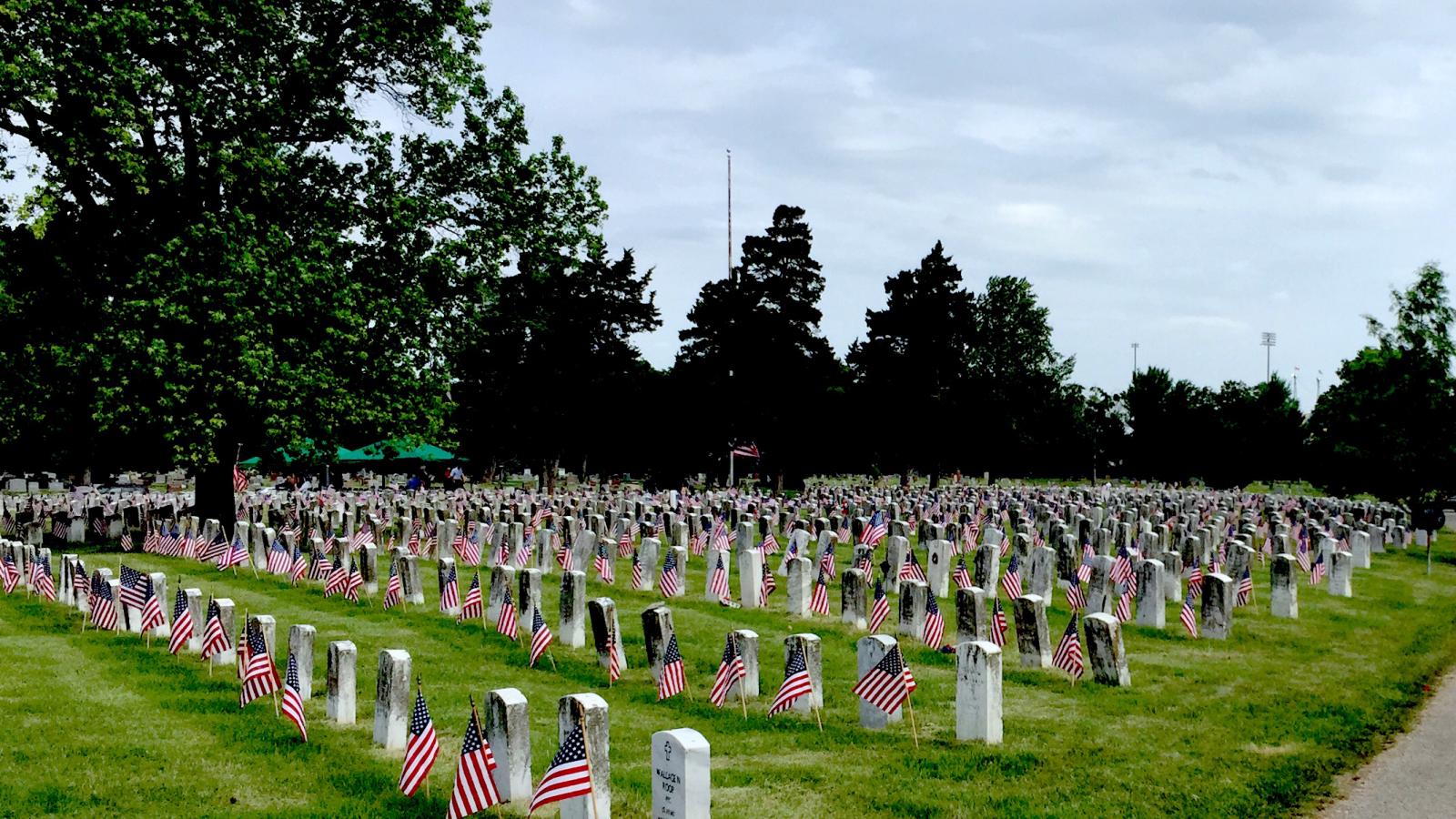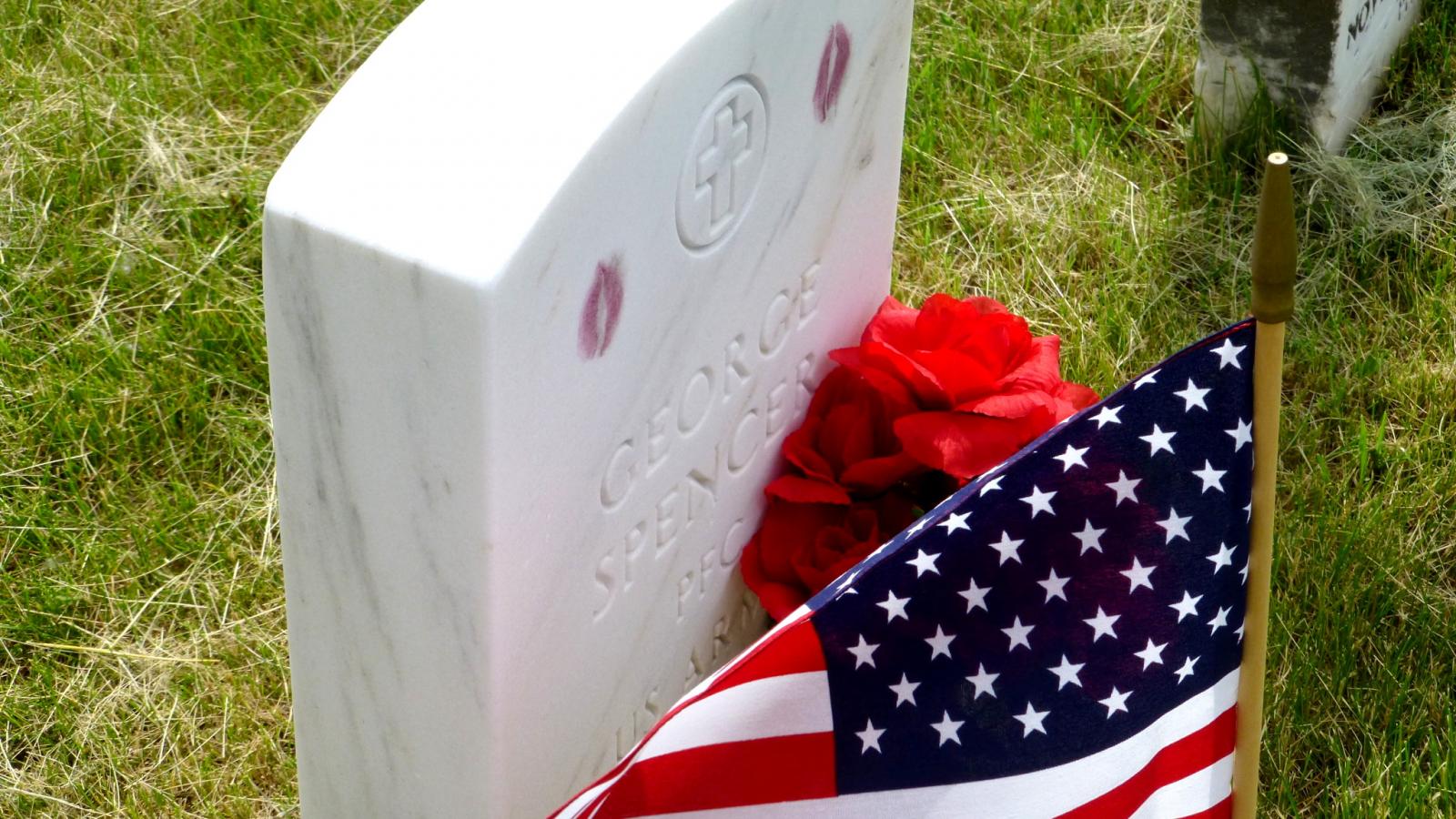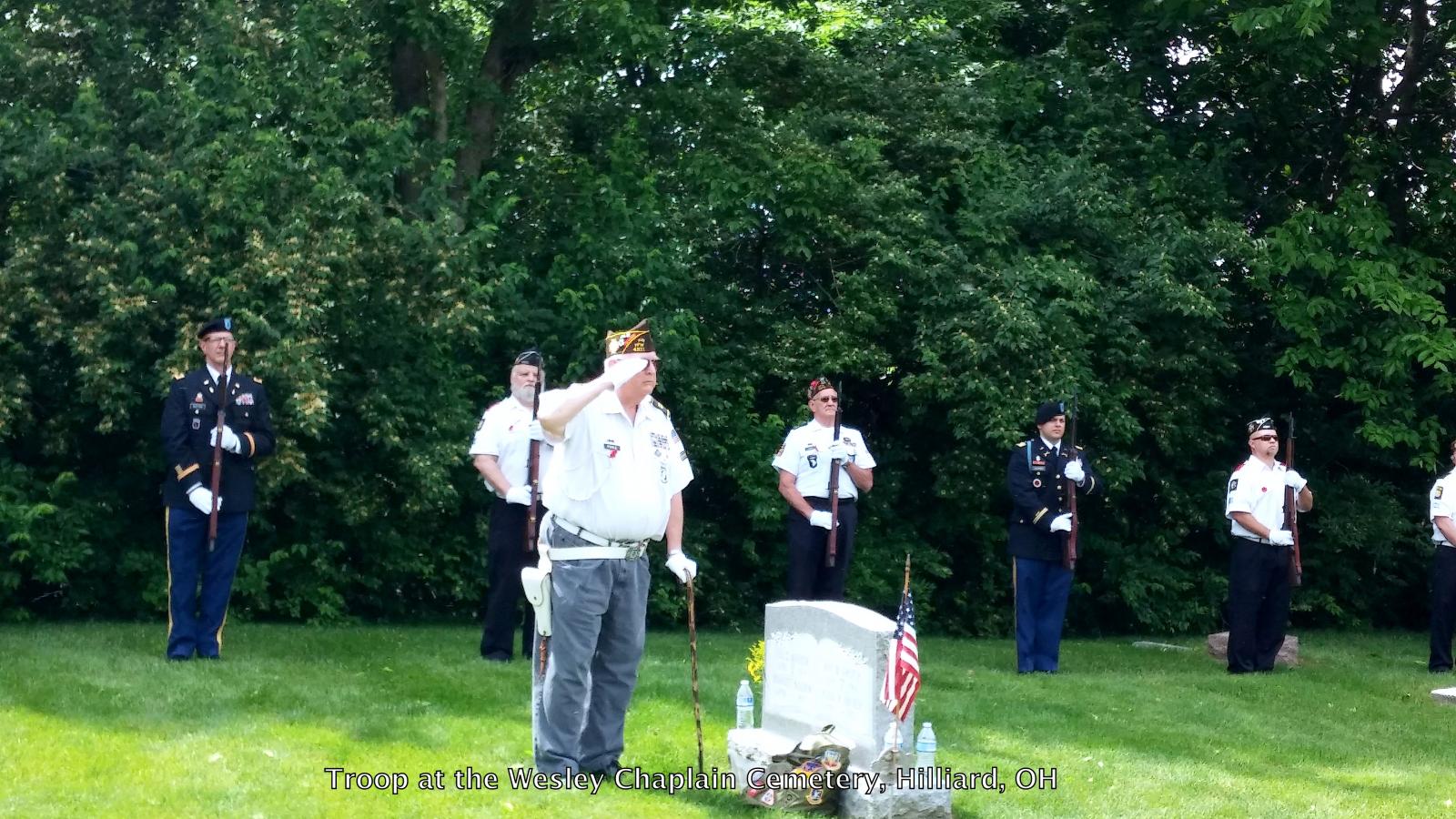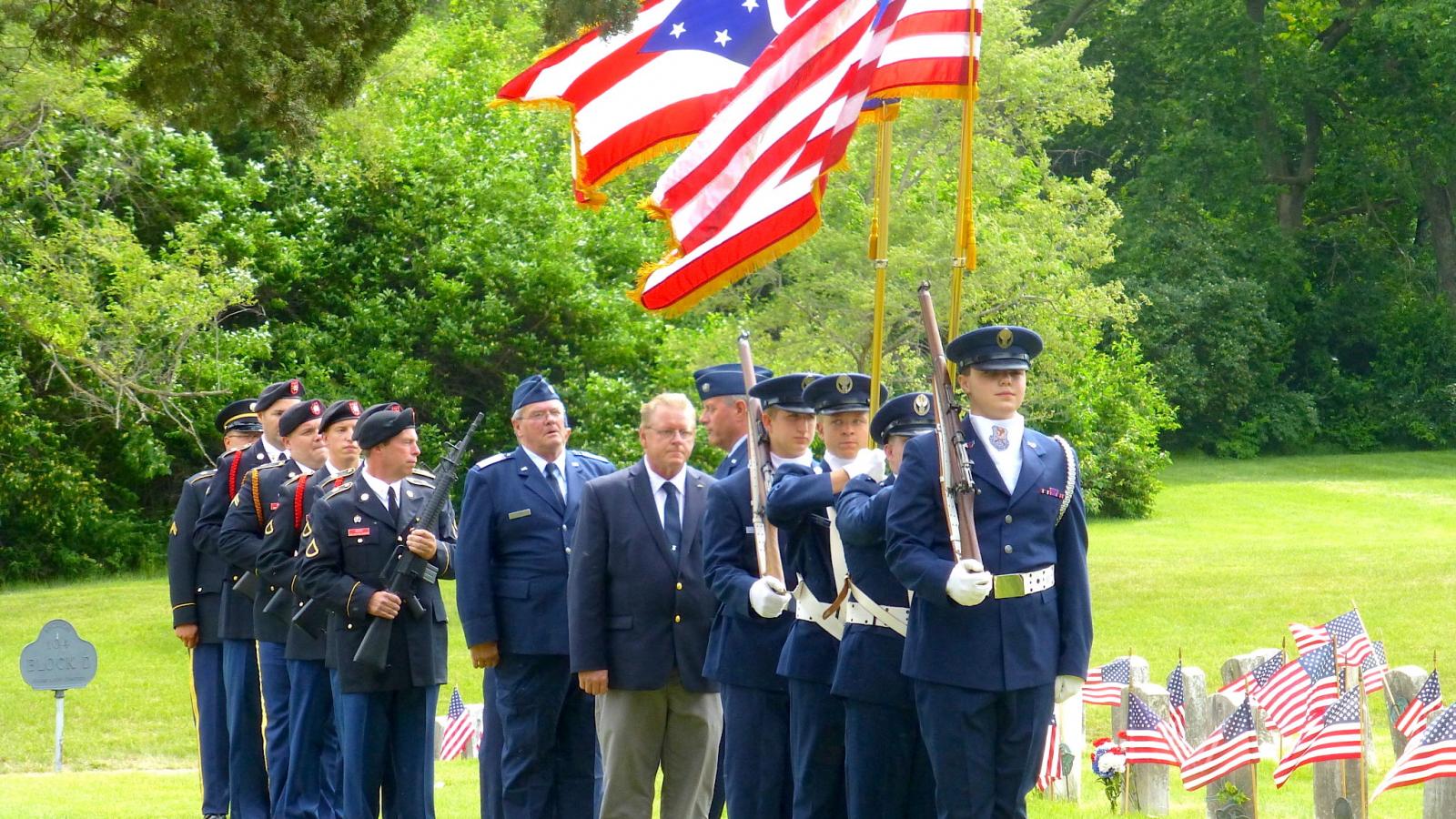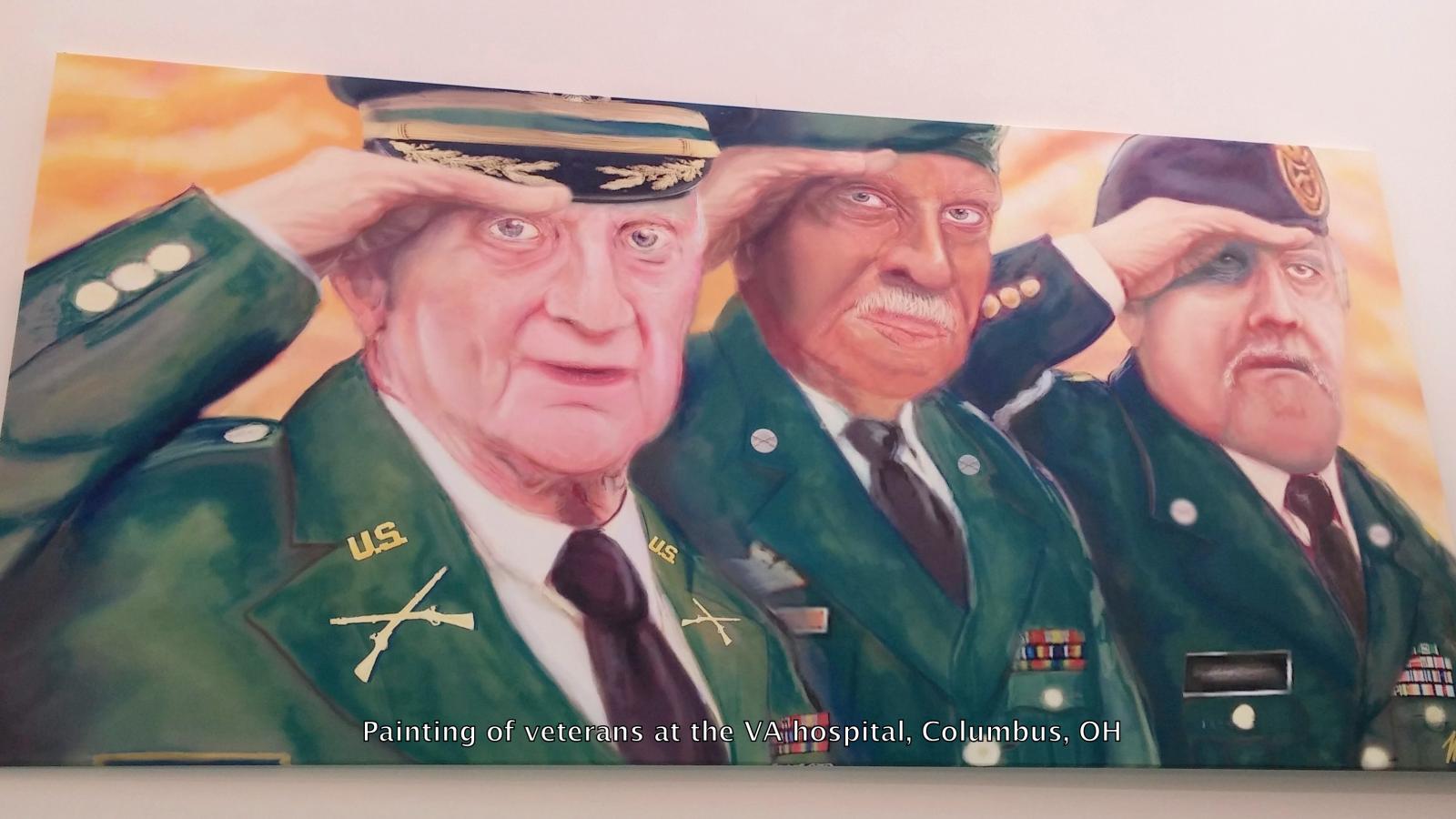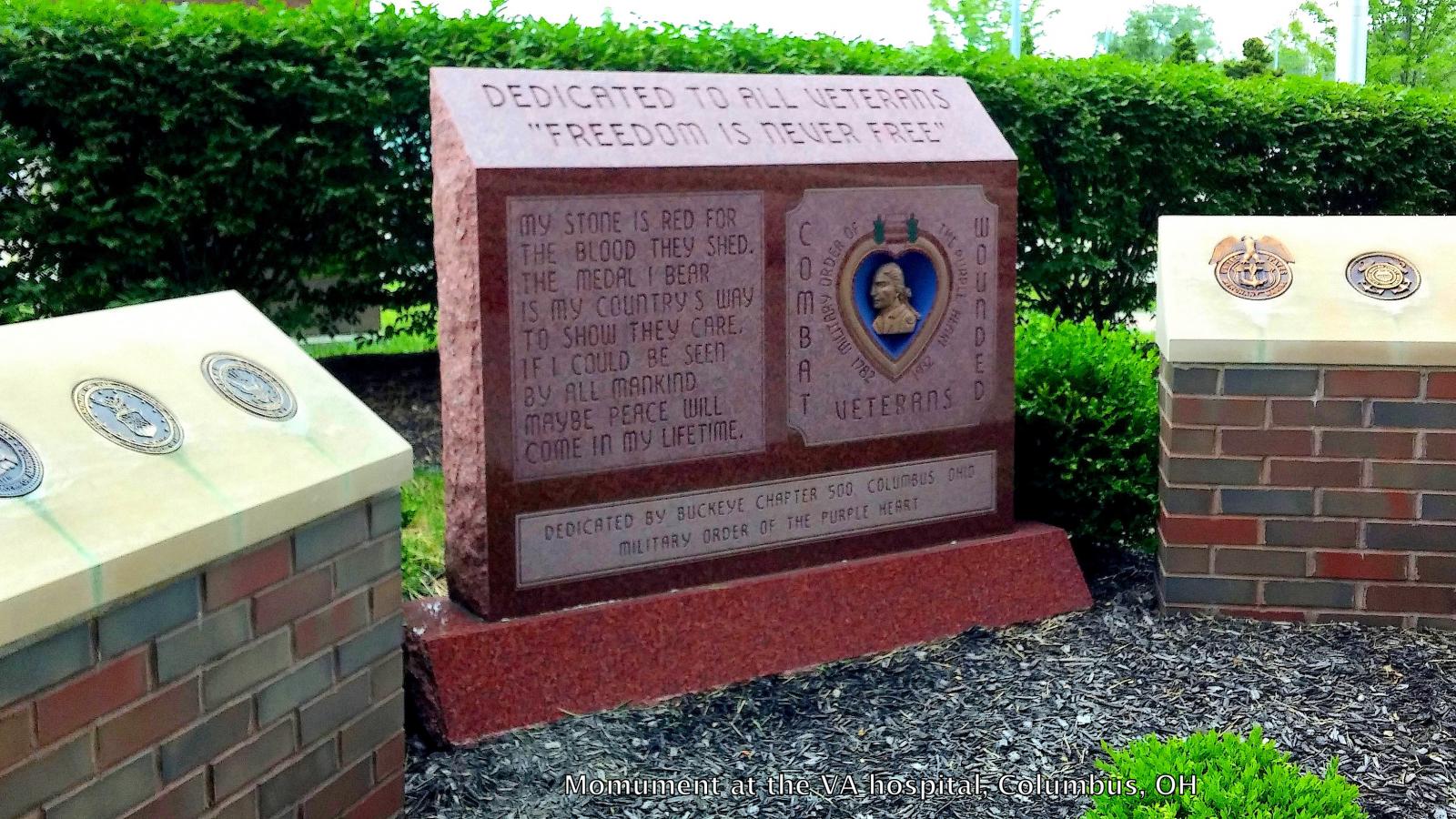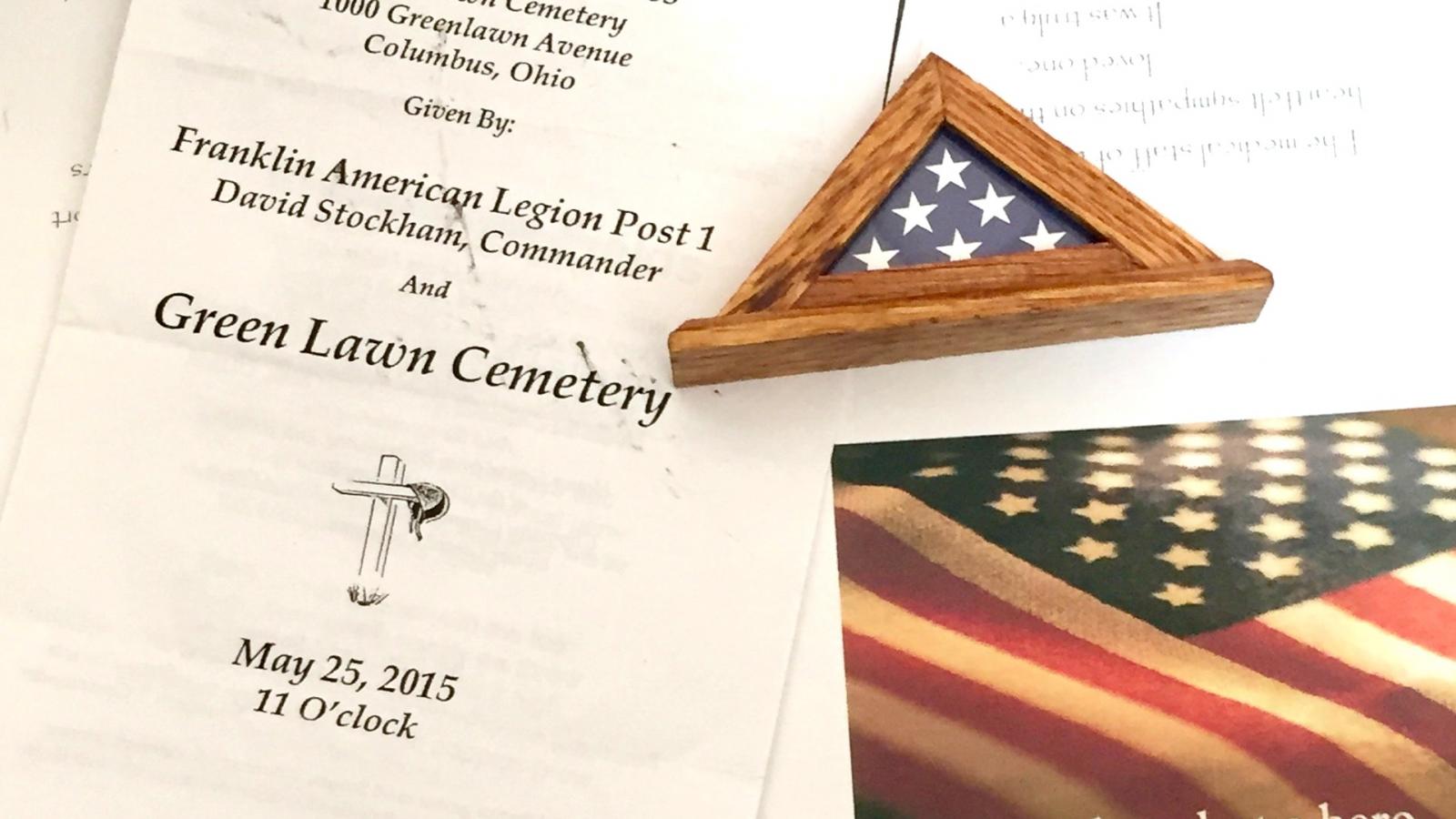Memorial Day
As part of the federal government, the U.S. military must tread carefully, both discursively and practically, in its use of religiously charged language and materials. One of its official mandates is to demonstrate strict neutrality, like any other appendage of the government. What does this neutrality look and sound like? To find out, we gathered images and sounds at various 2015 Memorial Day services. We also interviewed Carla Cherry, a chaplain at Columbus’s VA Hospital. The interview was conducted in Chaplain Cherry’s office at the VA Hospital on June 3rd 2015. In the interview, which lasted for about an hour, she shared several important insights about her experiences working with veterans and returning soldiers.
Chaplain Cherry began by discussing her appointment as the chaplain at the VA hospital in 2010. As a “fellow veteran,” her service in the navy (she retired in 2009) has assisted her tremendously in dealing with veterans and returning soldiers. She described veterans as “a unique group” and related that many veterans and returning soldiers find it hard to talk openly about their experiences in the military. Therefore, she is careful not to pressure patients to talk about their religious experiences if they are not willing. According to her, the military is expected both to “serve the spiritual needs” of all those under its wing and to create an environment in which no one feels offended or excluded.
Military chaplains such as Carla Cherry play key roles in helping patients cope with post-war traumatic experiences by coordinating with other religious communities and institutions around Columbus. A shocking statistic she shared with us was that “every 65 minutes a veteran commits suicide.” She expressed her commitment to doing everything she could to reduce that number and make transitions easier for former soldiers.
In her speech at the Memorial Day service at the VA hospital, Chaplain Cherry reminded the audience to keep the memories of the fallen soldiers alive in their hearts. She suggested that we often get so wrapped up in distractions that we grow numb to the significance of holidays like Memorial Day. This is supposed to be a day in which we recognize and show our appreciation to those who have dedicated their lives to protecting our nation and its people. Although it is not a religious holiday in terms of being associated with the worship of a higher power, it might be conceived as religious in relation to its ritualized practices and themes of gratitude. As Chaplain Cherry put it: “The failure of remembrance is a spiritual danger.... a failure of faith. It erodes the foundation of our relationships, not only with God but also with each other.”
Where, then, does religion make itself heard on Memorial Day? What are the sounds of memorialization and remembrance? The most distinctive sounds we noticed were the “21 gun salute” and playing of “Taps.” Even more, we noticed the important role that silence played in the various Memorial Day services, including a moment of silence for fallen soldiers and a memorial prayer that also involved silence. In this context, these silences seemed deeply resonant, as allowing moments for the sacralization of memory without endorsing any particular religion or religious community.
Field Researchers:
- Matthew Campbell
- JaMezz McKinney
- Evie Wentzel
- Yanty Wirza

